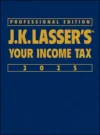Rental of Home to Child Limits Deductions
If you own property that you rent to your adult child and do not charge a fair rental amount (what a third party would pay), you must report all of the rental income but deductions are limited. Take this case: Parents rented out a single-family home to an unrelated tenant for $6,000 per month. After the tenant moved out, they rented it to their daughter for $2,000 per month. They reported rent of $24,000, total expenses (i.e., mortgage interest, taxes, insurance, and depreciation) of $158,360, and a net loss of $134,360.
The Tax Court disallowed the parents’ rental expenses in excess of rental income (Charles Okonkwo, TC Memo 2015-181), and an appellate court agrees (CA-9, 12/11/17). The reason: Code Sec. 280A limits deductions for a dwelling unit used as a residence to rental income, other than those that would otherwise be allowable (e.g., mortgage interest on a second home; real estate taxes). A dwelling unit is used as a residence if the taxpayer, or a family member, uses it for personal purposes for more than the greater of 14 days a year or 10% of the number of days it is rented at a fair rental amount that year.
Although their daughter’s rent of $2,000 per month was substantially below fair market value, the parents argued that she also provided services. Because there was no proof of this, the value of services could not be taken into account by the appeals court.
Constructive receipt
A tax rule that taxes income that is not received by you but that you may draw upon.



